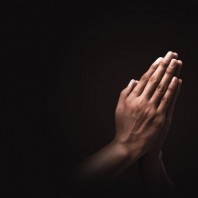Well before the pandemic, there was a cultural war happening over values. Contrary to what many believe, these values are not left wing versus right wing ideologies, or progressivism versus conservatism. The struggle is only framed in this way due to coincidental polarization in politics and wealth distribution.
I’m talking about the tension between two equally valuable goals, so eloquently captured in the Serenity Prayer of the Twelve Steps program:
“God, grant me the grace to accept with serenity the things I cannot change, courage to change the things I can, and wisdom to know the difference”
This prayer implicitly gives equal merit to owning mistakes, taking sensible responsibility and accepting the unshakable nature of reality (or: reality of nature). It leads to two important questions we must ask ourselves before taking a final stand in any important and complex problem: what is the argument for the acceptance of, or taking responsibility over, a (part of the) a phenomenon beyond our control, regardless of our role in causing it?
We seem capable of applying this logic daily in our lives. You wouldn’t ask a kid to just ‘suck it up’ if he has been hurt while taking too much risk at skateboarding. It’s quite clear what needs to be learned from this later and what needs to be fixed now. The same for a kid that fails a test that he has not studied for. Now let’s try to apply this almost intuitive wisdom to a few key global contention points, which would get you an especially feisty Thanksgiving dinner conversation.
Global Jihad
Can we “fix” religion? Do we “own” the dark side of our own and try to actively reform it? Do we accept cultural disruption as a consequence of immigration? How much disruption exactly? Do we “fix” exclusion and tribalism? Do we accept terrorism as a natural phenomenon and boldly continue our freedom as usual indefinitely? Is there reform needed of our own unbridled liberal freedom?
Global warming
Every era has its challenges that you simply must have an opinion about and boy is this one of them. Whether or not you are at all literate in the science, either you believe the earth is heating up and humans are causing it, or you don’t. The norms associated with these opinions are often implicitly linked: if earth is in danger and we’re the cause, we should fix it at any cost; if it’s not, we’re off the hook and shouldn’t be taxed, or bullied into submission. Is it reasonable to argue for centralized policy and control from fear and danger, even to the point of extinction, if we realistically cannot change the chain of events? At the same time, is it fair to put science in question, to place doubt around facts, when the outcome points to an inconvenient truth about required changes in lifestyle and global wealth distribution?
Institutional Racism
What if we applied the same logic here? What are reasonable criteria for deciding which of the consequences of racism can be prevented and which should be mitigated? The answers should decide where we take ownership and where we accept reality and prepare and adjust as best as we can for it. Do we even accept these are different goals?
Now for the Global Pandemic
While many people thought nothing could ever beat the urgency and importance of climate on the political agenda, in come these microscopic organisms, aided or not by scientists, which had a different plan. Was there ever a more clear-cut case where we should all head the warnings, protect the weak, fight the enemy? How easily World War 2 was associated, how quickly everyone waived constitutional rights for this unprecedented crisis. Our inability to rationally handle perceived exponential phenomena became abundantly clear: we were not ready.
But does that mean we now suddenly need to forego our attained rights to ‘die the way we want to’? Hasn’t liberal society fought long and hard for the individual’s right to make personal choices over their own body? And what if the vaccines work? Would you vaccinate the weak and let the rest of society go about its business again? If it doesn’t, why vaccinate at all? If it’s not 100% effective, then why not model the numbers and accept the responsibility of making tough decisions between what you ‘allow’ people to die from. Car accidents? Stage IV cancer? Suicide by depression?
Covid is not the absolute and exclusive disaster it’s portrayed to be if you make that fair comparison. And frankly that has note even ever been a central policy decision. Insurance companies (and therefore the entire field of healthcare) has been making this calculated decision for decades already, looking cold and detached at the ‘number of healthy life years lost’. Not all fatal diseases are treated equally, or ever have been.
In the midst of all the confusion about what’s fact and what’s propaganda, what is effective and what is counter-effective, the decision between when to act and when to accept seems to have been passed without consideration.
Maybe that’s wrong. Maybe we should always balance responsibility to act with the serenity to accept. Maybe we should look for the wisdom found in centuries of ethics, distilled in constitutions and international treaties, to know the difference.
Or are we in a haste to plunge forward, risking the destruction of the very core freedoms of our society to prevent getting ‘caught’ on our past mistakes? To prevent the addiction to power from driving us down that road, the Twelve Step program has a very important first rule that our leaders should take to heart: to admit they are vocationally at risk and personally powerless over their addiction to power.

